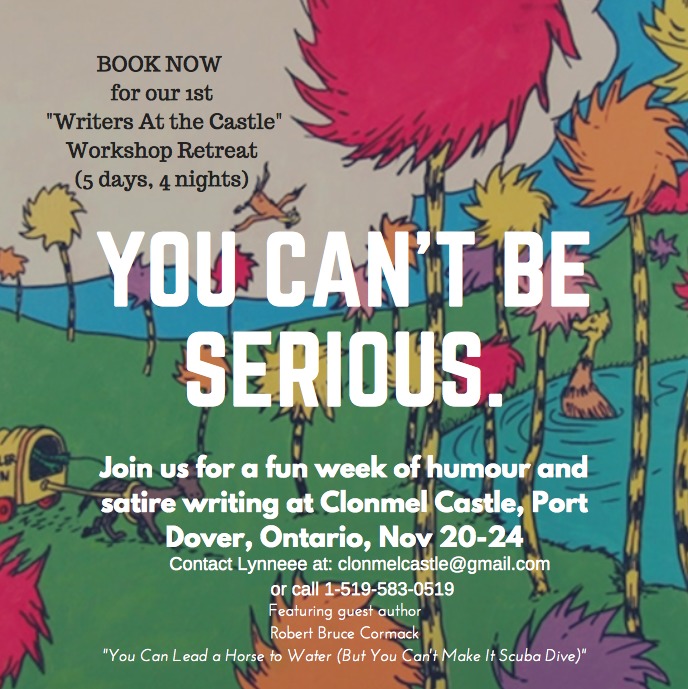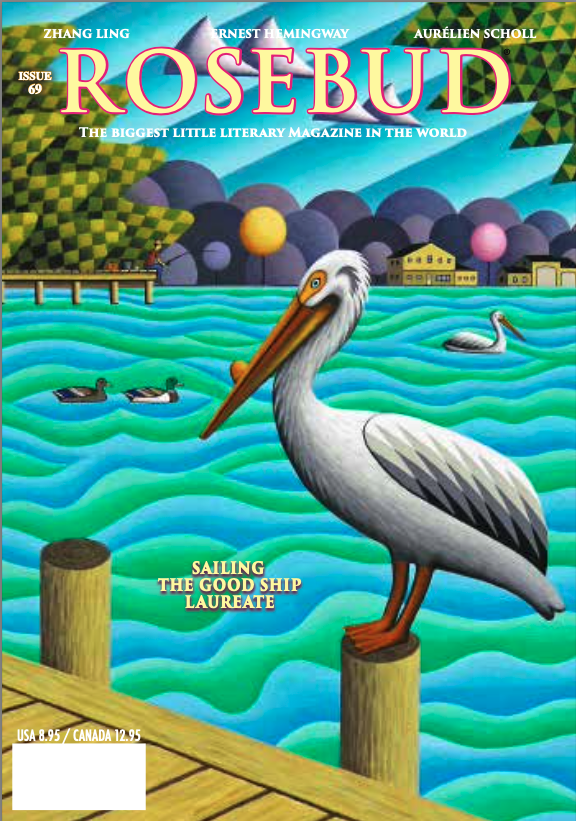The Tangling of Words.
The more words we use, the more we abuse, and the more we abuse the more words we use.

“What you’ve got to say, you say.” Shel Silverstein
As simple as Silverstein’s poems may seem, they were a daily struggle. He was a constant revisionist. More importantly, he was a constant simple-ist. Every poem used the fewest words possible, including this one about life itself:
Oh, if you’re a bird, be an early bird/ And catch the worm for your breakfast plate/If you’re a bird, be an early bird—/But if you’re a worm, sleep late
There was a rule in Penthouse Forum: Keep it short, like most of the reader’s love lives. If you’re reading it here, you probably aren’t getting any down there.
You had to be interesting in a short space of time. Most people read Reader’s Digest on the can.
Well, that made sense. You never had to reread a Forum letter. Nobody was scratching their heads, except over some of the submissions. Is it even possible to bed 10 cheerleaders in one night?
Everyone working at Reader’s Digest was taught simplicity. Never write above your reader, they’d say. Not many RD readers were thirteen-year-olds, but that was the level of writing. You had to be interesting in a short space of time. Most people read Reader’s Digest on the can.
Maybe that’s the problem with writing today. We aren’t reading on the can. If we were, we’d see how tangled our words have become. We spend more time making headlines like “You’ll never have to ask for love again”
Why couldn’t the writer just say: “If you love yourself, then others will figure you must be onto something.”
Now, I’ve been asking for love since I exited the birth canal. Imagine my shock and surprise when I learned I have to love myself first (and not in a shake-it-under-the-covers kind of way). I thought, “This is interesting,” and started reading. By the end, I wasn’t sure if I wanted to love myself or not:
“To judge yourself kindly is to feel worthy and respected and appreciated, and that’s when you’re open to receiving love instead of constantly having to ask for it, which is when you stop doubting your ability to BE loved and find the love you always desired.”
I’m all for finding love and fulfillment, but I got lost among the platitudes. Why couldn’t the writer just say: “If you love yourself, then others will figure you must be onto something.” That’s the way line-ups work, isn’t it? Stick ten people together on the sidewalk and you’ll have a hundred in no time at all.
It’s also interesting how writers can fall back on worn-out phrases, turning interesting thoughts into professional monotony:
“As more and more individuals and organizations become semi-proficient on these various platforms (Facebook, LinkedIn, and Instagram in particular) are we destined to endure one long streaming feed of incessant babbling?”
“What you’ve got to say, you say,” Shel Silverstein once summarized. Who among us doesn’t admire that kind of brevity? And who among us isn’t telling themselves: “I could have come up with that.”
Hundreds of years later, he’s still a genius, and we get nothing for writing in a washroom cubicle: “I think, therefore I flush.”
It’s like René Descartes and his: “I think, therefore I am.” Hundreds of years later, he’s still a genius, and we get nothing for writing in a washroom cubicle: “I think, therefore I flush.”
So why do we tangle our words? Why do platitudes constantly sneak into our sentences? The answer to the second is wrapped up in the first. Tangled words seem to cut off our supply of common sense.
After the Las Vegas shootings, the Las Vegas Convention and Visitors Authority put out the following billboard: “We’ve been there for you during the good times. Thank you for being there for us now.” Someone wrote this one word response: “Goosebumps.” That gave him goosebumps?
Considering the nuttiness that exists today, you’d think our writing would at least be as colourful. Yet we fall back on worn-out phrases all the time.
I got goosebumps seeing people take a direct flight to Nunavut rather than hang around McCarran airport. I mean, if a mentally threadbare accountant can take 16 assault weapons into a hotel, imagine the level of weaponry in the airport’s executive lounge.
Considering the nuttiness that exists today, you’d think our writing would at least be as colourful. Yet we fall back on worn-out phrases all the time.
I think back to authors like James Thurber and E.B. White who could spend a week on one paragraph.
Hunter S. Thompson once typed out the entire “The Great Gatsby,” just to understand the rhythms of Fitzgerald’s writing. He had good reason. Here’s just one line from Fitzgerald’s greatest novel:
“When I came back from the East last autumn I felt that I wanted the world to be in uniform and at a sort of mortal attention forever; I wanted no more riotous excursions with privileged glimpses into the human heart.”
Think of how the rest of us write. We’d rather say “I didn’t offend anybody” than have a unique thought. And how often do we spend more time qualifying our thoughts than on the thought itself?
At the beginning of my career, I wrote In Memoriams for a country radio station. The funeral homes would call in the details with the same words of condolence. These days, it seems like we’re doing the same thing. We trot out old words and phrases like they’re death notices.
One writer who continually writes great copy is Dave Barry, former humorist with the Miami Herald. When asked to defend the media’s coverage of the stock market, Barry explained it this way:
“Perhaps you wonder how come we here in the news media always make such a big deal about the stock market. The answer is simple: We don’t understand it. We have an old saying in journalism: ‘If you don’t understand something, it must be important.’”
The great thing about Dave Barry is he doesn’t sound like everyone else. Rather than tangle his words, he makes them funny. Somehow it comes across as true—or at least asinine—which is often the truth as well.
Surely, we can do better than funeral homes.
Perhaps that’s what we all need in our writing. We need a little truth, a little bravery, and a lot more fun. Otherwise, we’ll continue sounding like those In Memoriams.
Surely, we can do better than funeral homes. We need to stop tangling and abusing words. We need to become simple-ists like Shel Silverstein. Look how he handled the difference between rich and poor:
The little fish eats the tiny fish/The big fish eats the little fish—/So only the big fish get fat/ Do you know any folks like that?
Anyone interested in writing satire and humour should attend our “Writers At the Castle” workshop retreat, Nov 20–24. It’s held at Clonmel Castle, Port Dover, Ontario. For 5 days and 4 nights, you can learn, write and discuss humour in a beautiful 90-year-old Georgian Revival retreat. For more details, contact Lynneee at: clonmelcastle@gmail.com or call: 1–519-583-0519. Please book by Nov so we know the numbers. All skill levels welcome.

Robert Cormack is a novelist, humorist and blogger. His first novel “You Can Lead a Horse to Water (But You Can’t Make It Scuba Dive)” is available online and at most major bookstores. Check out Yucca Publishing or Skyhorse Press for more details. Robert will be the guest author at “Writers At the Castle.”
""
Articles from Robert Cormack
View blog
Fuck. · “I thought about reading a poem by Shakespeare, but then I thought, why should I? He never r ...

This is the latest issue of Rosebud Magazine (#69), marking my twenty-year relationship with publish ...

When you start dispersing crowds with James Blunt songs, it makes you wonder if the world is funny o ...
Related professionals
You may be interested in these jobs
-
information technology
Found in: Talent CA 2 C2 - 1 day ago
Khalsa IT Services Brampton, CanadaEducation: · Expérience: · Education · College/CEGEP · Tasks · Respond to users experiencing difficulties with computer · Consult user guides, technical manuals and other documents to research and implement solutions · Provide advice and training to users in response to identif ...
-

Capital Markets Compliance Advisor
Found in: Talent CA 2 C2 - 2 days ago
CB Canada Toronto, CanadaCapital Markets Compliance Advisor · On behalf of our client in the Banking Sector, PROCOM is looking for a Capital Markets Compliance Advisor. · Capital Markets Compliance Advisor – Job Description · To provide support to FICC team with a focus on transaction reporting (MTRS ...
-
AZ DRIVER-LCBO Ottawa
Found in: Talent CA C2 - 4 days ago
Canada Cartage Ottawa, CanadaDescription · Canada Cartage is the country's largest provider of outsourced fleet solutions, providing dedicated equipment and drivers to both small and large firms. The driver will be working on a dedicated account, and will be responsible for deliveries within Ottawa and sur ...



Comments
Robert Cormack
6 years ago #6
Thanks, @Simone Luise Hardt. We're hoping.
Robert Cormack
6 years ago #5
True enough @Zacharis Voulgaris
Robert Cormack
6 years ago #4
Joyce 🐝 Bowen Brand Ambassador @ beBee
6 years ago #3
Zacharias 🐝 Voulgaris
6 years ago #2
And "succinctness is a form of philosophy" according to a Greek saying
Lyon Brave
6 years ago #1